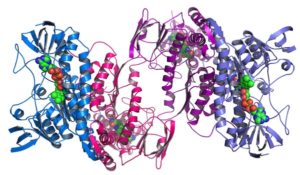Polypeptide is long chain of unbranched amino acids. Usually the amino acids are molecules bond together by what is called the peptide bonds (covalently) in order to form polypeptide. Many polypeptide molecules form a protein. Each polypeptide contains about 50 or more amino acids.
| Polypeptide | Protein | |
| Layman definition | Single group of many amino acids bounded together by amide binds | A group of polypeptide |
| Origin | Greek ‘tettios’ digested | Greek ‘proteios’ primary |
| Who coined said term | Emil Fischer 1902 | Jons Jacob Berzelius 1838 |
| Molecular weight | Lower | Higher |
A protein is one or more number of long chains of amino acid which combine together to form large molecules (biomolecules).when more than one polypeptide combine, they make up a protein.
It is thus in agreement that all polypeptides are proteins. The simplest compound of proteins and polypeptides are amino acids. When amino acids join linearly to make a long chain then a polypeptide is formed. When more than one polypeptide combine, they form a structure called the protein macromolecule. Polypeptides are long but shorter than a protein and do not fold while proteins are long and fold forming a folded structure. Therefore the two are the same in composition but defer in structure and length.




